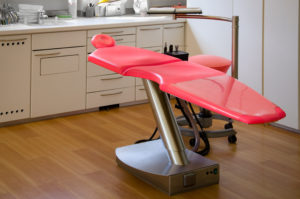 It is certainly true that most men dread a digital rectal, or prostate exam, but some far more than others. In this era of PSA and other sophisticated molecular tests there have been questions raised as to whether or not the dreaded finger exam is still indicated. The controversy regarding PSA itself continues and is closely related to soon to be revised guidelines from the US Preventive Health Task Force. However, the USPHTF did not address rectal exam at all.
It is certainly true that most men dread a digital rectal, or prostate exam, but some far more than others. In this era of PSA and other sophisticated molecular tests there have been questions raised as to whether or not the dreaded finger exam is still indicated. The controversy regarding PSA itself continues and is closely related to soon to be revised guidelines from the US Preventive Health Task Force. However, the USPHTF did not address rectal exam at all.
Are DRE’s Still Valid?
According to an article in Science Daily, “The dreaded finger exam to check for prostate cancer used to be a mainstay of check-ups for older men. With its value now in question, some doctors share the risks and benefits with their patients and let them decide. So, should they or shouldn’t they?”
The statistics they include are limited and somewhat in conflict. “PSA testing detected 680 cases of significant cancer, compared to 317 cases for DRE.” I find this surprising and confusing because I think the number of abnormal DRE exams in patients with elevated PSA found to have prostate cancer is MUCH less than nearly half.
“Of interest to Terlecki’s team were the 5,064 men who had a normal PSA test but an “abnormal” DRE. Only 2 percent of these men had what is known as clinically relevant prostate cancer, which means it may need to be monitored or treated.” These patients were gathered and evaluated over 13 years. Frankly, the definition of clinically relevant prostate cancer is STILL controversial and evolving, so I am not sure how they could confidently make that statement.
I can’t really address whether or not primary care providers should do digital rectal exams as I am not sure what percent would really be confident in evaluating the prostate. However, as a urologist, I would not want the digital rectal exam taken out of my hands (or at least my finger). It is especially important for the first visit to establish a baseline not only to feel for areas suspicious for cancer, but also to get an idea about the size and shape of the prostate as it may pertain to benign prostatic enlargement. The prior study did not consider this at all. Another piece of data available with digital rectal exam is sphincter muscle tone. A poor amount of tone may reflect a generally weakened patient or one with a neurologic issue and is also helpful to know in addressing the patient’s full set of medical concerns.
You can schedule an appointment with Dr. Newman of Las Vegas Urology for the dreaded finger exam.
